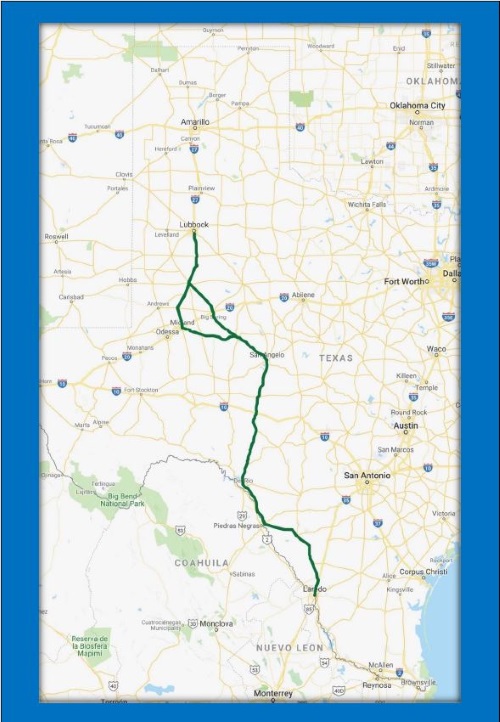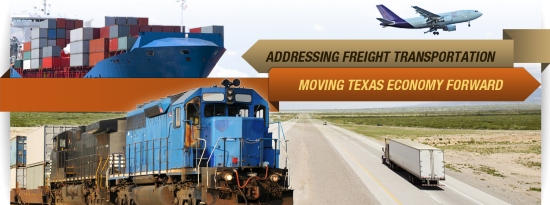|
Contents
Messaging to Congress: Alliance Priority: Increased Investment with No Bias Against Rural Highways
The Alliance urges Congress to enact infrastructure legislation and reauthorize the FAST ACT. We urge Congress to:
- Increase Investment. We support a substantial increase in federal investment for infrastructure and transportation. Commission after Commission, study after study, report after report have documented the underinvestment in our national infrastructure. The time has come for action!
- Fix The Highway Trust Fund. We support a long-term, sustainable fix for the Highway Trust Fund.
- Increase User Fees. We recognize that there is no free lunch. We therefore support paying for these increased investments through increased user fees (rather than general funds or gimmicks). We support the recommendations of the U.S. Chamber of Commerce and the National Surface Transportation Policy and Revenue Study Commission to raise motor fuel user fees by 25-cents per gallon over a five-year period.
- The Alliance will publicly thank, support, and defend Members of Congress who make the tough vote to increase highway user fees.
- Continue Streamlining Reforms. We strongly support continued efforts to streamline the Federal approval and permitting processes, with a goal of reducing the time for approvals/permitting to two years.
CAVEAT: Our support for additional investment in infrastructure and transportation, and our support for increased user fees, is contingent on Rural America being treated fairly in the legislation.
- Congress must recognize the importance of rural multi-state highways.
- The Ports-to-Plains Alliance Corridor is part of the National Highway System, which consists of the highways that are important to the nation’s economy, defense, and mobility. These are the roads of the highest federal interest; the roads that link rural America with the rest of the United States and to markets in other nations.
- Unfortunately, many multi-state rural highway corridors on the National Highway System -- including the Alliance Corridor--are two-lane, antiquated highways facing challenges. They carry growing levels of traffic and commerce; lack adequate capacity; fail to provide the needed levels of connectivity to many communities; are not built to adequate standards to accommodate growing agriculture, energy, and freight travel; have significant deficiencies, lack many desirable safety features; and experience serious traffic crashes at a rate far higher than other highways.
- These are the highways delivering the food, fuel, and fiber that secures the quality of life of America’s great cities. Modernizing this network of roads and bridges is important. The strength of America’s economy—rural and urban—relies greatly on it.

- Congress must ensure that the legislation be fair, balanced and not biased against rural multi-state highways.
- This starts by recognizing that financing techniques (such as public-private partnerships (PPP) and tolling) that work in urban and suburban America simply do not work in Rural America. The legislation must recognize this fact. It must not rely on PPPs or tolling for the source of investment for rural highways, And it must not structure the rural investment programs in a way that requires private sector participation; this simply is not possible for most rural highways.
- To be acceptable, the legislation must direct a fair share of the investment to Rural America. It must ensure a level playing field for rural highways, especially multi-state rural highway corridors on the National Highway System. And it must retain the 80-20 Federal-state partnership for rural highways.
- IF Congress decides to provide “Article I spending” for specific projects in the 116th Congress, we urge our Congressional delegation to ensure that projects on the Corridor are included.
- The 116th Congress will likely consider a major infrastructure bill, a long-term surface transportation reauthorization bill, and annual transportation appropriations bills. In addition, it may consider climate change/green new deal initiatives either as stand-alone measures or in conjunction with the legislation mentioned above.
- There has been considerable discussion and speculation that Congress may provide “Article I spending” (i.e., Congressionally-directed spending) for specific projects. IF Congress decides to statutorily direct some investment to specific projects, we urge our Congressional representatives to ensure that projects on the Ports-to-Plains Corridor are included. The Alliance can help identify worthy projects.
Return to Contents
Messaging to Congress: Designation of Future Interstate 27
The Ports-to-Plains Alliance urges Congress to designate the southern-most portion of the Ports-to-Plains Alliance Corridor in Texas as future Interstate Highway I-27. A detailed map showing the portion of the Corridor from Lubbock to Laredo can be found below.
Currently I-27 is a 124-mile Interstate spur, starting on east-west Interstate I-40 in Amarillo and running south to Lubbock, where it terminates. The Alliance proposal would extend I-27 from its terminus in Lubbock to the international border crossing at Laredo, a distance of about 500 miles. The estimated cost is $5.2 billion.

The Precedents
The Alliance proposal is consistent with precedent. In ISTEA, TEA-21, SAFETEA-LU, and the FAST ACT, as well as from time to time in transportation appropriations acts, Congress has designated certain Congressionally-Designated High Priority Corridors (HPC) as future additions to the Interstate Highway System. To date, more than 20 HPCs have been so designated. The Alliance proposal tracks the language of these precedents.
The Proposal
The Alliance proposal would do four things:
- It would designate the Congressionally-designated High Priority Corridor from Lubbock, TX, to Laredo, TX, as a future addition to the Interstate Highway System.
- It would designate the route as Interstate Route I-27.
- It would direct Texas to erect signs along the route identifying such route as future Interstate Route I-27.
- It would ensure that vehicles that can legally operate on this portion of the Corridor today would be able to operate on I-27 once completed and opened to traffic.
The Alliance proposal would NOT do the following:
- It would NOT require Texas to make a commitment to complete the highway to Interstate standards within a specific time period.
- It would NOT automatically result in the appropriation or allocation of additional funds at either the federal or state level. It does NOT commit the state or federal government to funding.
The Justification
The I-27 extension would be a logical addition to the Interstate Highway System.
- It would have connectivity benefits. The I-27 extension would provide the only major north-south corridor in Texas west of I-35, and it would intersect three major east-west Interstate routes: I-10, I-20, and I-40. It would serve three international border crossings: Del Rio, Eagle Pass, and Laredo. It would connect major West Texas population and economic centers, including Amarillo, Lubbock, Midland-Odessa, and San Angelo, in addition to numerous smaller communities. It is critical to linking the energy and agricultural sectors to state, national, and international trade.
- It would have congestion relief benefits. More than 2.3 million trucks passed through Laredo in 2018, more than through any other land port of entry by far (Detroit was next largest at 1.5 million). Many of these trucks head north on I-35 toward San Antonio, Austin, Dallas and Fort Worth, making I-35 one of the Nation’s most congested Interstates. The I-27 extension would provide an alternative north-south Interstate route, thereby helping to relieve congestion by diverting traffic off I-35 at Laredo. Results would be improved on-time delivery and decreased transportation costs for goods and services. Moreover, the $5.2 billion price tag for the 500-mile extension is cost effective when compared to the $4.8 billion cost of rebuilding just a 28-mile section of I-35 from I-635 to U.S. 380 in Dallas County.
- It would have economic development benefits. A future Interstate designation would be a significant new economic development tool for communities along the corridor. Site selectors for manufacturers, warehousing and distribution recommend sites along an interstate highway and travel services businesses such as hotels, truck stops, convenience stores and restaurants, which can have a dramatic impact on small communities will also expand. This will create much needed new jobs and expanded tax base in rural West Texas.
- It would have safety benefits. Travel on the nation's Interstate Highways is about twice as safe as travel on all other roadways. Given the large energy-related and agriculture-related trucks using this corridor, and the mix of personal, tourist, and truck traffic, safety will be greatly improved by the extension of I-27. Fatalities and injuries will be reduced.
- It would have national defense and national security benefits. About 300 miles, or 60 percent, of the extension is on the Strategic Highway Network (STRAHNET), which are the roads that provide defense access, continuity, and emergency capabilities for movements of personnel and equipment in both peace and war.
Return to Contents
Texas-Mexico Border Transportation Master Plan Stakeholder Meetings
Ports-to-Plains Alliance urges you to attend one of these Stakeholder Meetings. This Plan could be an important document in addressing border transportation needs including the extension of interstate 27 along the Ports-to-Plains Corridor.

LOCATION: LAREDO
Laredo College, De La Garza Room #101, 1st And West End Washington Street, Laredo, TX 78040
DATE AND TIME: Tuesday, April 23, 2019 from 2 p.m. - 4 p.m.
Download Flyer
LOCATION: EAGLE PASS
Eagle Pass International Center for Trade, 3295 Bob Rogers Dr., Eagle Pass, TX 78852
DATE AND TIME: Wednesday, April 24, 2019 from 9 a.m. - 11 a.m.
Download Flyer
BINATIONAL PLAN INFORMATION
TxDOT, in collaboration and partnership with the Border Trade Advisory Committee, is working with U.S. and Mexican agencies and stakeholders to update the Texas-Mexico Border Transportation Master Plan (BTMP).
The master plan will identify the cross-border challenges of moving people and goods and will include analysis of existing transportation systems — roadway, transit, pedestrian, pipeline, air, rail, ports and waterways.
The plan will analyze current and future transportation and will include a prioritized list of transportation investment strategies that improves the efficient movement of people and goods across the border and supports binational, state, regional and local economic competitiveness.
Download Overview Flyer
TEXAS-MEXICO BORDER TRANSPORTATION STAKEHOLDERS
TxDOT is hosting a series of stakeholder workshops throughout the border region to get your input on multimodal transportation needs, issues, challenges, and potential opportunities and solutions for efficiently and safely moving people and goods across the border and in the border region.
The intended audience for this workshop includes binational public and private sector stakeholders, brokers and logistics firms, cargo owners, and other trade transportation industry professionals.
WHY ATTEND THE WORKSHOP?
The purpose of the workshop is to gather input from binational public and private sector stakeholders about multimodal transportation needs, issues, challenges, and opportunities and solutions for moving people and goods across the border and the border regions.
Return to Contents
|